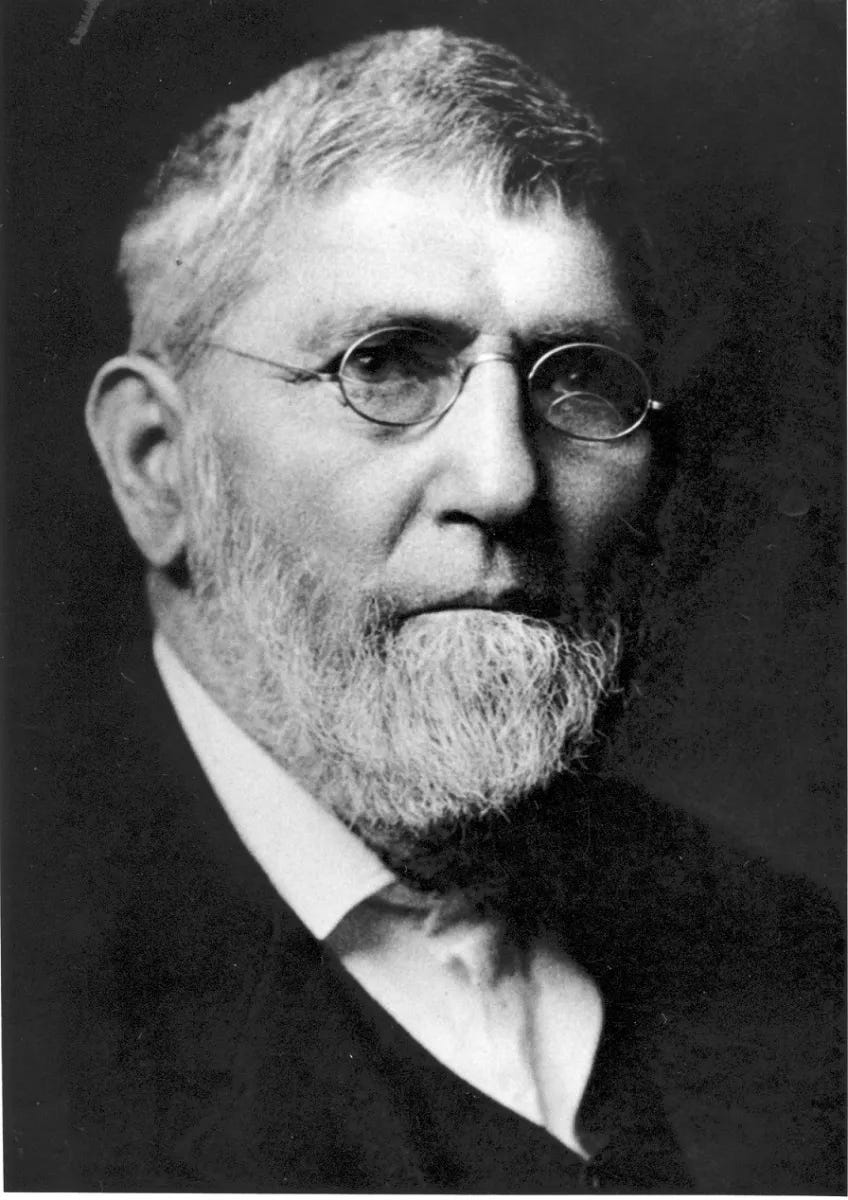Drawing the Circle Where God Drew It
The Difference Between Forbearing Weakness and Forcing Division
In 1875, David Lipscomb1 wrote these words:
“So long as a man really desires to do right, to serve the Lord, to obey His commands, we cannot withdraw from him. We are willing to accept him as a brother, no matter how ignorant he may be, or how far short of the perfect standard his life may fall from his ignorance…We will maintain the truth, press the truth upon him, compromise not one word or iota of that truth, yet forbear with the ignorance, the weakness of our brother who is anxious, but not yet able to see the truth …Why should I not, when I fall so far short of perfect knowledge myself? How do I know that the line beyond which ignorance damns, is behind me, not before me? If I have no forbearance with his ignorance, how can I expect God to forbear with mine? …So long then as a man exhibits a teachable disposition, is willing to hear, to learn and obey the truth of God, I care not how far he may be, how ignorant he is, I am willing to recognize him as a brother.” (Gospel Advocate, April 22, 1875).
These words sound radical in our day, but they are simply the language of Scripture. Paul told the Colossians to “bear with one another and forgive one another if anyone has a grievance against another. Just as the Lord has forgiven you, so you are also to forgive” (Colossians 3:13). He told the Romans, “Welcome anyone who is weak in faith, but don’t argue about disputed matters” (Romans 14:1). And again, “Therefore welcome one another, just as Christ also welcomed you, to the glory of God” (Romans 15:7).
The principle is clear: if I want God to bear with my ignorance, I must bear with my brother’s.
Lipscomb’s Context
When Lipscomb penned those words, he was serving as editor of the Gospel Advocate. His goal was to restore New Testament Christianity by rejecting human innovations and returning to the simplicity of Scripture. His 1875 words reflected his desire to extend fellowship to anyone genuinely seeking God, even if they are ignorant or weak, while never compromising the truth of Christ.
It is true that in later decades, Lipscomb took firm stands against instrumental music, missionary societies, and related issues. However, the difference was not that he abandoned his principles; it was that the context had changed. In 1875, he spoke about brothers who were weak or ignorant yet sincerely sought to obey God. By the turn of the 20th century, however, the controversy over the instrument and societies had hardened into division, with some insisting that their practices were superior and pressing them on others, even at the expense of violating consciences. In Lipscomb’s mind, that was no longer a matter of forbearance with weakness, but resistance to innovations being forced upon the church. To him, he was still upholding the same principle: bear with ignorance and weakness, but stand firm when practices threaten the unity and purity of the body.
Whether we agree with Lipscomb’s conclusions or not, his principle still confronts us. Unity must rest on Christ, not on our preferences or party lines.
What About Us Today?
The more important question isn’t whether Lipscomb was perfectly consistent.2 The real question is whether we are. His humility still challenges us:
Do we forbear with brethren who are sincerely trying to follow God, even if they don’t yet see what we see?
Do we acknowledge our own limitations of knowledge, or act as though the line of ignorance always falls just behind us and never in front of us?
Do we hold truth firmly but hold our brothers and sisters even tighter in love?
Our history in the churches of Christ is marked by division — over institutions, over practices, over countless judgments. Some of those concerns were serious, some less so. But in the process, we have often failed to show the patience Lipscomb called for, the patience Paul commanded, and the patience God extends to us every day.
Back to the Cross
The truth is this: fellowship rests at the cross, not on cups, classes, or traditions. God has already drawn the line, and His circle is far wider than ours. It includes all who, through faith, repentance, and baptism, have received the gift of grace made possible by the sacrifice of His Son.
That doesn’t mean we stop pressing the truth or stop teaching what we believe Scripture requires. But it does mean we bear with one another as God bears with us. And it means we never let our preferences or party lines replace the cross as the center of our fellowship.
As long as a brother or sister exhibits a teachable spirit and a willingness to hear and obey God, they are family. And family bears with one another.
Thanks to Jason Mock, who shared this quote yesterday in my Facebook thread on Thursday’s post.
Yesterday, Steve Wolfgang wrote in response to my article: “Interesting Lipscomb quotation, which raises the question (for Jason or Matt or Dan, Wayne or others), Why then does Lipscomb, 20 years later, counsel, advocate and actively participate in divisions when confronted with the practical, real-life “issues” of those promoting instrumental music, demanding church support of human societies (and then the other “issues” which arose in a following train: challenging the inspiration of Scripture, “open membership” and acceptance of the “pious unimmersed” etc). Was this lack of love on his part (and others like-minded)? Did he lose his way? Or was his a realistic or necessary path?”
Today’s article is written to address Wolfgang’s question.




